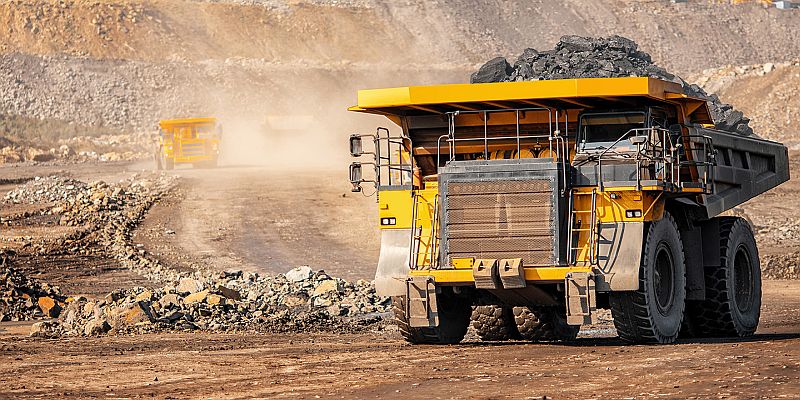Africa’s Energy Demand Projected to Increase by 60% by 2050

Mozambique's strategic location and large natural gas reserves position it to become one of the world's leading LNG exporters in the future. The recently published GECF Global Gas Outlook projects the country to be Africa’s leading LNG producer by the mid-2030s and transform into one of the top five LNG exporters globally by 2050, with its gas production expected to exceed 100 billion cubic meters.
In addition to its vast natural gas reserves, Mozambique is blessed with abundant natural resources, which hold the potential to drive the country inclusive and sustainable development. Strategic leveraging of these assets can boost industrial growth, create jobs, and generate revenue for essential sectors like education, healthcare, and infrastructure. Prioritizing local content and capacity building will help develop a skilled workforce and a robust domestic industry that supports the natural gas sector.
It is crucial to facilitate the financing required for the development of Mozambique’s gas resources, which are not only vital for the socio-economic progress of the country but also play a pivotal role in enhancing global energy security.
No other words capture this aptly than President Nyusi’s when he said on the occasion of Mozambique joining the GECF two years ago that natural gas is “an essential element for building peace, stability, and prosperity”.
Natural gas markets have demonstrated remarkable resilience and flexibility to the successive shocks over the last four years and seem to have returned to a period of relative stability. Global gas demand increased by more than 1% in 2023, driven by lower spot LNG prices, a record annual commissioning of LNG regasification capacity, and a resurgence in demand in China. We project global gas demand to further increase by more than 1.5% in 2024 and around 2% in 2025, respectively, underpinned by strong economic growth, stabilization of prices at a lower level compared to the recent years and a return to colder winters in the Northern Hemisphere with the recent end of El Nino meteorological event.
The convergence of the coronavirus pandemic, economic and financial stresses, and geopolitical shifts have underscored the vital role of energy in supporting economic growth, social progress, and environmental protection and have propelled the energy trilemma to the forefront of policymakers' agendas: how to simultaneously ensure energy security, energy equity, and environmental sustainability.
This intricate balancing act is demanding for all nations, but it is even more complex for Africa, where socio-economic development and poverty eradication are the overriding priorities.
In his speech at the 7th GECF Summit of Heads of State and Government held on the 2nd of March in Algeria, HE Philippe Nyusi highlighted “two themes that lie at the heart of the energy sector, particularly in Africa: energy transition and global security. Our understanding is that the transition must consider the urgency of combating energy poverty in Africa, as the continent needs to increase access to energy for its population, at the same time that concerted action is required from all of us in defense of common interests in favour of security and stability”.
Over the next three decades, Africa’s energy demand is projected to increase by 60% by 2050, underpinned by a population growth of 1 billion people, primarily in Sub-Saharan Africa. This significant rise in demand unfolds while the residential sector currently accounts for 56% of final energy consumption, with traditional biomass being the primary source. This situation highlights the critical need for access to clean, reliable, and sustainable energy solutions to support both economic development and environmental sustainability.
There is no universal solution or one-size-fits-all model. Achieving sustainable development goals requires a nuanced integration of diverse energy sources and technologies, tailored to the unique circumstances, capabilities, and priorities of each country.
Natural gas, which is available, clean, flexible, and versatile, emerges as a pivotal solution, offering a pathway for an orderly, equitable, and just energy transition.
Transitioning from the use of traditional biomass and coal to natural gas reduces indoor pollution, improves urban air quality, and mitigates climate change. Furthermore, natural gas is a partner of variable renewables, providing back up and stability to power grids. It also plays a crucial role in global food security, as it is a key component in the production of fertilizers.
The GECF projects demand for Africa’s natural gas to nearly double by 2050, contributing around 17% to the continent’s energy mix.
Africa's natural gas resources are huge, and the continent remains underexplored.
Converting gas reserves into reliable supply requires substantial investments in exploration, development, infrastructure, and human capacity building. Natural gas projects are capital-intensive with long lead times and payback periods.
The narrative that natural gas investment is incongruent with climate change mitigation is misguided.
African nations, bearing no historical responsibility for climate change and contributing only a mere 3% to global greenhouse gas emissions, should not be penalised for using their natural resources to lift their people out of poverty. We call upon international financial institutions, and notably the African Development Bank, to extend their support to natural gas development projects in Africa.
The 7th Summit Algiers Declaration reaffirmed the permanent sovereignty of member countries over their natural gas resources and called for timely investment and unhindered flow of financial resources, access to technology, and knowledge transfer in a non- discriminatory manner.
It expressed a strong support for African countries in their aspirations and commendable endeavours to tackle energy poverty, address the challenges related to energy access and foster sustainable, equitable and inclusive socio-economic development while protecting the environment, in line with the United Nations 2030 Development Agenda and the African Union’s Agenda 2063.
By HE Eng. Mohamed Hamel,
Secretary General of the Gas Exporting Countries Forum.
